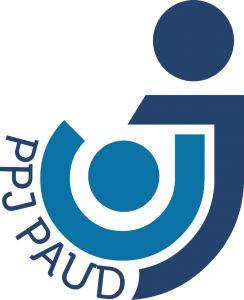PENDIDIKAN SEKS PADA ANAK USIA DINI DITINJAU DALAM PERSPEKTIF PENDIDIKAN AGAMA ISLAM
DOI:
https://doi.org/10.30736/jce.v1i2.12Abstract
Introducing sex education in early childhood in the modern era is not such a taboo instead of being forbidden from discussion. Given the widespread sexual abuse and child abuse, this phenomenon should be a concern for all circles. Not only do families and educators participate in addressing the issue but also the wider community has to provide supervision and take account of it. Introducing or giving early childhood understanding about sex that refers to Islamic religious education which is widely discussed by Muslim intellectuals based on such religious sources as theQur'an,Hadith, Ijma and so fourth are part of dealing with the problem of child sexual abuse. On this stand, Sex education is not but such an information about the importance of knowing the name and function of body parts, the understanding of sex differences, the understanding of intimacy or sexual relationship as well as the understanding of the existing values and norms in society related to gender identity and inculcating religious cometment will greatly help children pass through the next stage of ageReferences
Freda Briggs, Russell Hawkins. 1997. Child Protection: A Guede For Teacher and Child Care Professionals .
Handayani, Alva, Aam Amiruddin. 2008. Anak Anda Bertanya Seks ? : Langkah Mudah Menjawab Pertanyaan Anak Tentang Seks. Bandung:Khazana.
Isjoni. 2009. Model Pembelajaran Anak Usia Dini. Bandung: Alfabeta.
Patmonodewo, Soemiarti. 2000. Pendidikan Anak Pra Sekolah. Jakarta: Rineka Cipta.
Madan, Yusuf. 2004. Sex Education for Children Panduan Islam bagi Orangtua dalam Pendidikan Seks untuk Anak, Terjemah dari kitab Al-Tarbiyah Al-Jinsiyyah li Al-Athfal wa Al-Balighin. Jakarta: PT Mizan Publika.
Madani, Y. 2003. Pendidikan Seks Untuk Anak Dalam Islam. Jakarta: Pustaka Zahra.
Narwita, Muslik. 2013. Bunda, Seks Itu Apa?: Bagaimana Menjelaskan Seks pada Anak. Bandung: Yrama Widya.
Nurhasmah, Wini. 2015. Implementasi Pendidikan Seksual untuk Anak Usia Dini. Skripsi. Bandung: Universitas Pendidikan Indonesia
Poerwadarminta. W.J.S. 1994. Kamus Besar Bahasa Indonesia. Jakarta: Balai Pustaka.
Safrudin, Ayuib. 1994. Islam dan Pendidikan Seks Anak. Solo:Pustaka Manteq.
Soemiarti. 2000. Pendidikan Anak Pra Seklah. Jakarta: Rineka Cipta
Downloads
Published
How to Cite
Issue
Section
License
Please find the rights and licenses in JCE (Journal of Childhood Education). By submitting the article/manuscript of the article, the author(s) agree with this policy. No specific document sign-off is required.
1. License
Use of articles will be governed by the Creative Commons Attribution - ShareAlike license as currently displayed on Creative Commons Attribution-ShareAlike 4.0 International License.
2. Author(s)' Warranties
The author warrants that the article is original, written by stated author(s), has not been published before, contains no unlawful statements, does not infringe the rights of others, is subject to copyright that is vested exclusively in the author and free of any third party rights, and that any necessary written permissions to quote from other sources have been obtained by the author(s).
3. User Rights
JCE (Journal of Childhood Education)'s spirit is to disseminate articles published are as free as possible but there is a little payment for publication. Under the Creative Commons license, JCE (Journal of Childhood Education) permits users to copy, distribute, display, and perform the work for commercial purposes. Users will also need to attribute authors and JCE (Journal of Childhood Education) on distributing works in the journal and other media of publications.
4. Co-Authorship
If the article was jointly prepared by more than one author, any authors submitting the manuscript warrants that he/she has been authorized by all co-authors to be agreed on this copyright and license notice (agreement) on their behalf, and agrees to inform his/her co-authors of the terms of this policy. JCE (Journal of Childhood Education) will not be held liable for anything that may arise due to the author(s) internal dispute. JCE (Journal of Childhood Education) will only communicate with the corresponding author.
5. Miscellaneous
JCE (Journal of Childhood Education) will publish the article (or have it published) in the journal if the article’s editorial process is successfully completed. JCE (Journal of Childhood Education)'s editors may modify the article to a style of punctuation, spelling, capitalization, referencing and usage that deems appropriate. The author acknowledges that the article may be published so that it will be publicly accessible and such access will be free of charge for the readers as mentioned in point 3.
JCE (Journal of Childhood Education) by Universitas Islam Lamongan is licensed under a Creative Commons Attribution-ShareAlike 4.0 International License.Based on a work at http://journalfai.unisla.ac.id/index.php/jce.












